"Platforms don't need to be complex, or for someone to be hoovering up that much of the income": Wavetick on their new artist and producer-focused sample marketplace
Promising an artist-focused service that gives musicians, beatmakers and producers a free marketplace to trade their sonic wares, Wavetick aims to disrupt the current sample website paradigm in the creator’s favour. Let’s find out more…
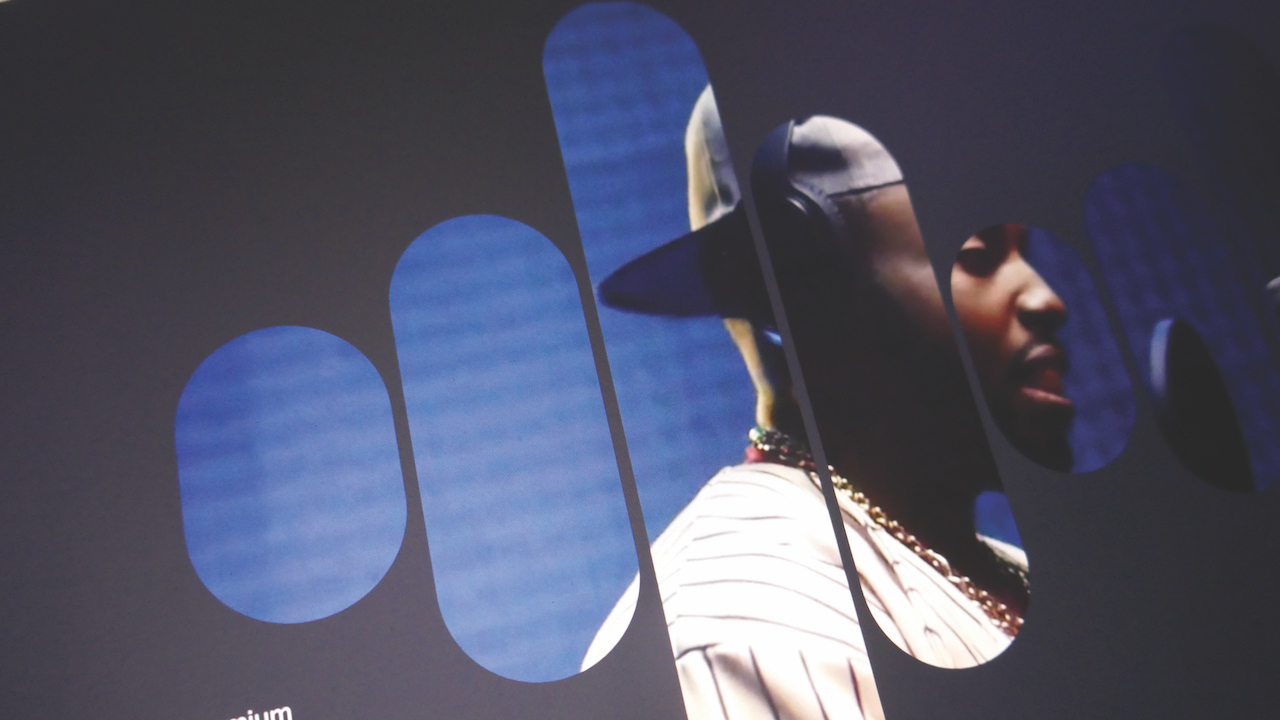
Want all the hottest music and gear news, reviews, deals, features and more, direct to your inbox? Sign up here.
You are now subscribed
Your newsletter sign-up was successful
As a founder of such industry tentpoles as Sample Magic, Attack Magazine, Audiaire and Principle Pleasure studios, Sharooz Raoofi has already left a sizeable footprint on the music production landscape.
Whether wearing his entrepreneurial hat or as an artist in his own right (you might be familiar with his hailed alter-ego Principleasure) Raoofi is keen to shake up the mould. This is strikingly true of his latest venture, Wavetick.
Alongside a small band of collaborators, Sharooz aims to bring a fairer, more flexible and entirely unrestrictive service for producers, songwriters and beatmakers, creating a platform where they can sell their creations frictionlessly whilst retaining 90% of all royalties. It all sounds fantastic, but we had more than a few questions…
So firstly, can you give us an overview of Wavetick – what is it, and what benefits does it provide to musicians and producers in contrast to the other available marketplaces?
“We’re really trying to do things differently. One thing I think the world doesn’t need right now is another site that’s selling sounds and tracks. But there’s certainly a lot of unique features that we offer that other people don’t. Particularly with the advent of AI, we’re really positioning ourselves as an artist-focused and artist-led operation. The first thing to say is that you don’t have to pay to be on there. With some folks, you have to pay some form of service fee whether it’s monthly or yearly in order to onboard and sell.
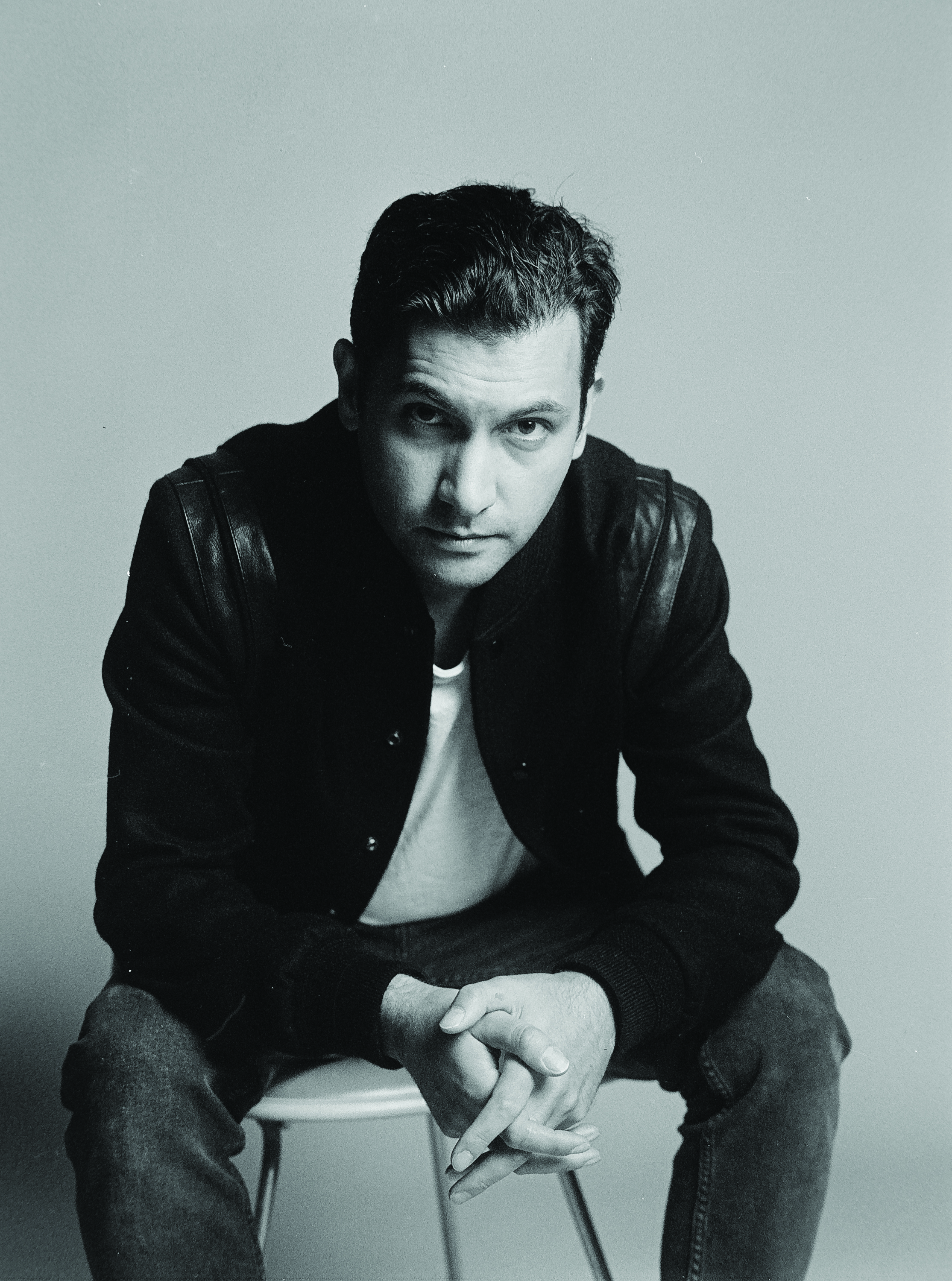
"We don’t require card details to be on-site. It’s essentially completely free and takes just a few seconds to onboard. The second thing is that we only take a very small platform fee. We take just 12.5%. That number is quite deliberately fixed there as it’s lower than Bandcamp which is 15%. We figured it was the lowest possible rate we could do while guaranteeing the service we want to provide.
“From a seller perspective, that probably stands out the most, but once you start diving into the product you’ll see that we have quite a unique setup. One thing that’s quite unique is that we can offer ‘Limited Edition’ products. This means that we can offer just one licence to just one buyer. So, in essence you could sell ‘ghost produced’ tracks on there that others can buy and work with. Or, completely one-off sound-packs that only one person can buy.
Want all the hottest music and gear news, reviews, deals, features and more, direct to your inbox? Sign up here.
"We can extend this further with 1-of-10, 100 or 200 editions too, so it’s possible to sell completely limited-edition works there. We found this to be quite popular. I spent four and a half years at Splice, and one of the key takeaways was a lot of people are using the same sounds. We are offering that limited edition ability to have something that nobody else has.”
You’ve had quite the career as an industry titan, so what was it that prompted you to start Wavetick now?
“I think it was just examining some of the other products that were in this space, and listening to the frustrations. Not just as someone who is interested in being an entrepreneur, but as an artist myself. Thinking ‘what would I gravitate towards?’. And what has the least friction for users. What offers the fairest terms.
Platforms don’t need to be complex, or for someone to be hoovering up that much of the income
"The big thing that we’re doing is taking aim at this idea of 50/50 splits on licence fees. Some of our competitors are still retailing samples, sound packs and production music at 50/50 licence fee splits. That was a major motivator, but also just the overall user flow and experience.
“It doesn’t need to be complex, and certainly doesn’t need someone to be hoovering up that much of the income. It shouldn’t require someone to be paying to be selling. Looking at all these things as an overall health-check of what’s going on in our space, was our starting point.”
How complex was it to set up Wavetick from a legal point of view?
“The legal part of it was a lot of work. What you’re really paying for on our platform – aside from merchandising space – is a legal framework within which you can license one-off beats, tracks and sounds to a user. Legally that’s really complex actually. So we’ve devised these purchase tiers that are coloured. They go from Bronze upwards. The more precious the metal (or colour), the more rights the licensor is being granted. A Bronze-tiered product would essentially be a royalty-free sample pack with the rights granted by beatmaker/seller.
“A ‘Black’ beat is something that is essentially owned by us as a platform and is licensed by us to the end-user. As both a seller and a buyer, you can cherry pick exactly what you want and the rights that go with it. The legal work that went with that was incredibly complex, but we managed to break it down in an easy‑to-digest way.
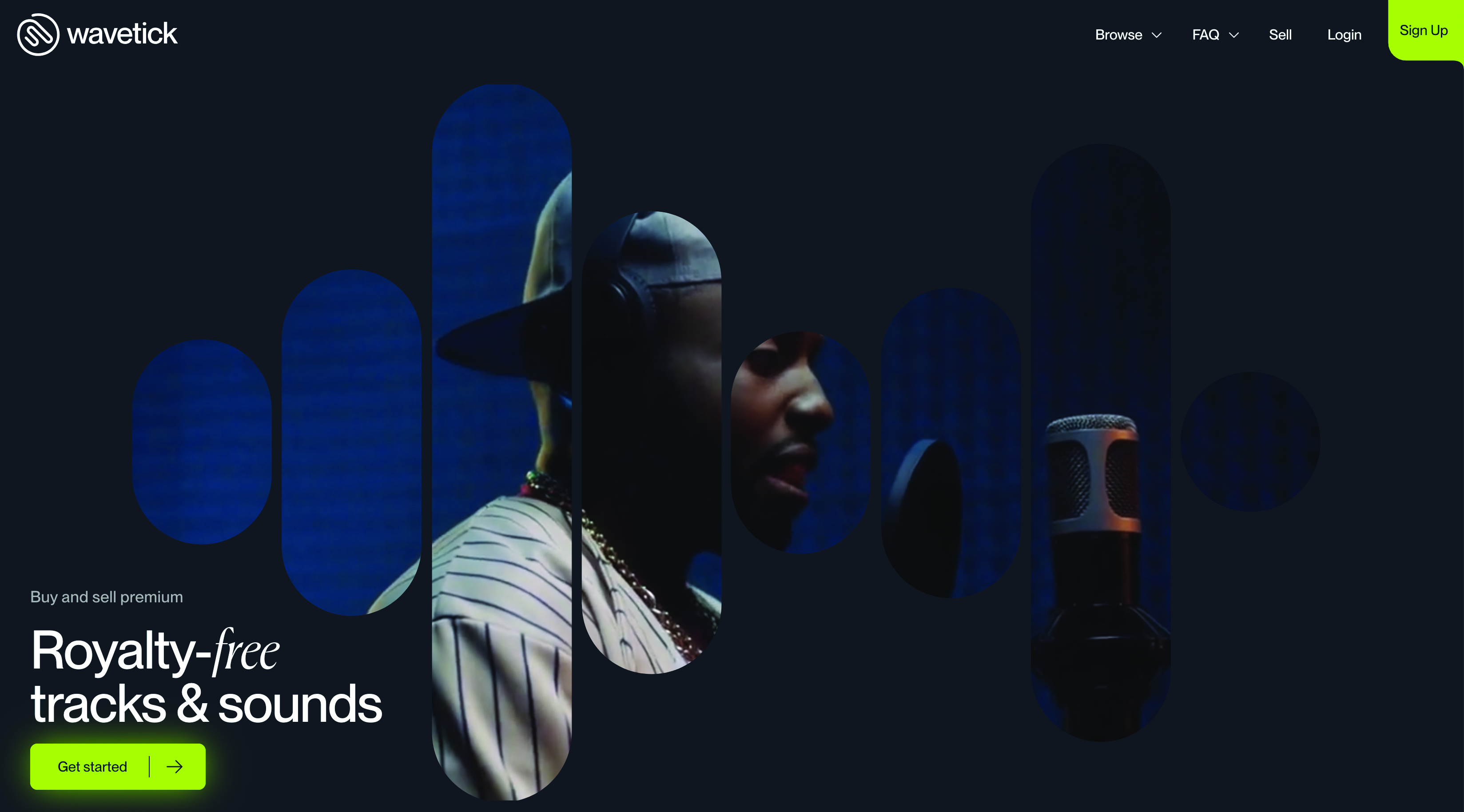
“Another issue we had with the beatmaker space, particularly with the rise of NFTs a few years back, was that there wasn’t any governance or legality to what was being done. Everybody had to accept that blockchain was this sort of great ‘validator’ of what was happening, but there really wasn’t any legality granting the terms of the licence. We want to be very careful that what we’re doing presents security for both sides of the coin. The legal work was a really big part of it, and I’m really glad we got that right.”
How much insight and analytics do creators get on how their material is being used?
“Well we have a royalty dashboard built in, but in terms of who’s using tracks or sound packs, we don’t have any after-care so to speak. But for tracks, you enter your CAE/Performing Rights IPI number when you go to sell. When a buyer gets a track from a seller, that CAE information is actually traded. If you buy a track and sample it into your new work, then there’s actually a publishing interest for both parties in that work.
"So the person who has sold it gets 50% and the person that bought it gets 50%. It goes beyond the focus of actually paying a fee to license a track. It gives both parties an opportunity to share in the ecosystem in a much better way. They exchange email information through the CAE.
“It’s almost like a peer-to-peer licensing system; we’re not really involved in it. We provide our legal terms and our storefront. But if you were to buy a track from me, for instance, and use it in a derivative work (say, rap over it or put a vocal over it) the responsibility of how that new work is registered is the responsibility of the maker and the purchaser.”
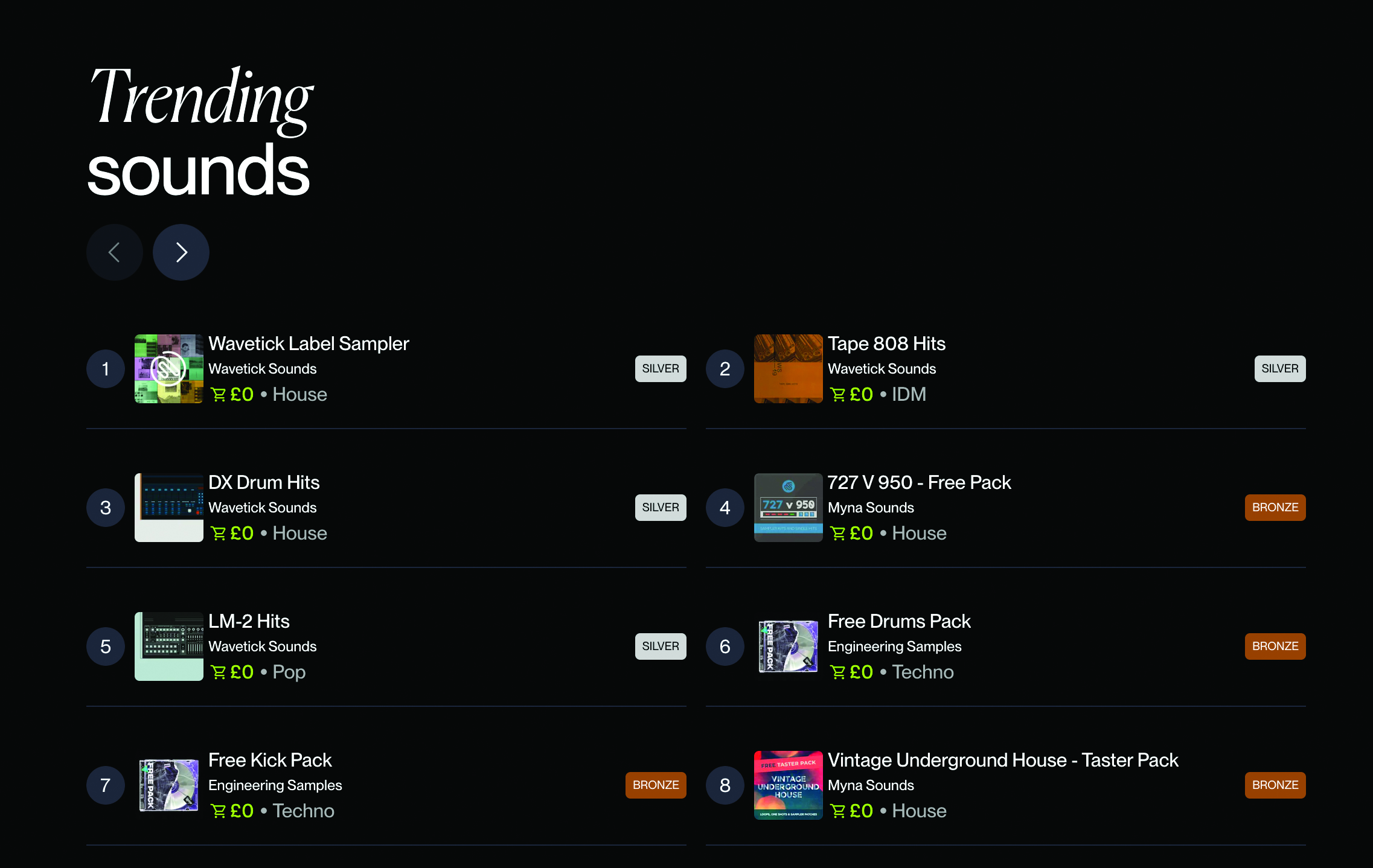
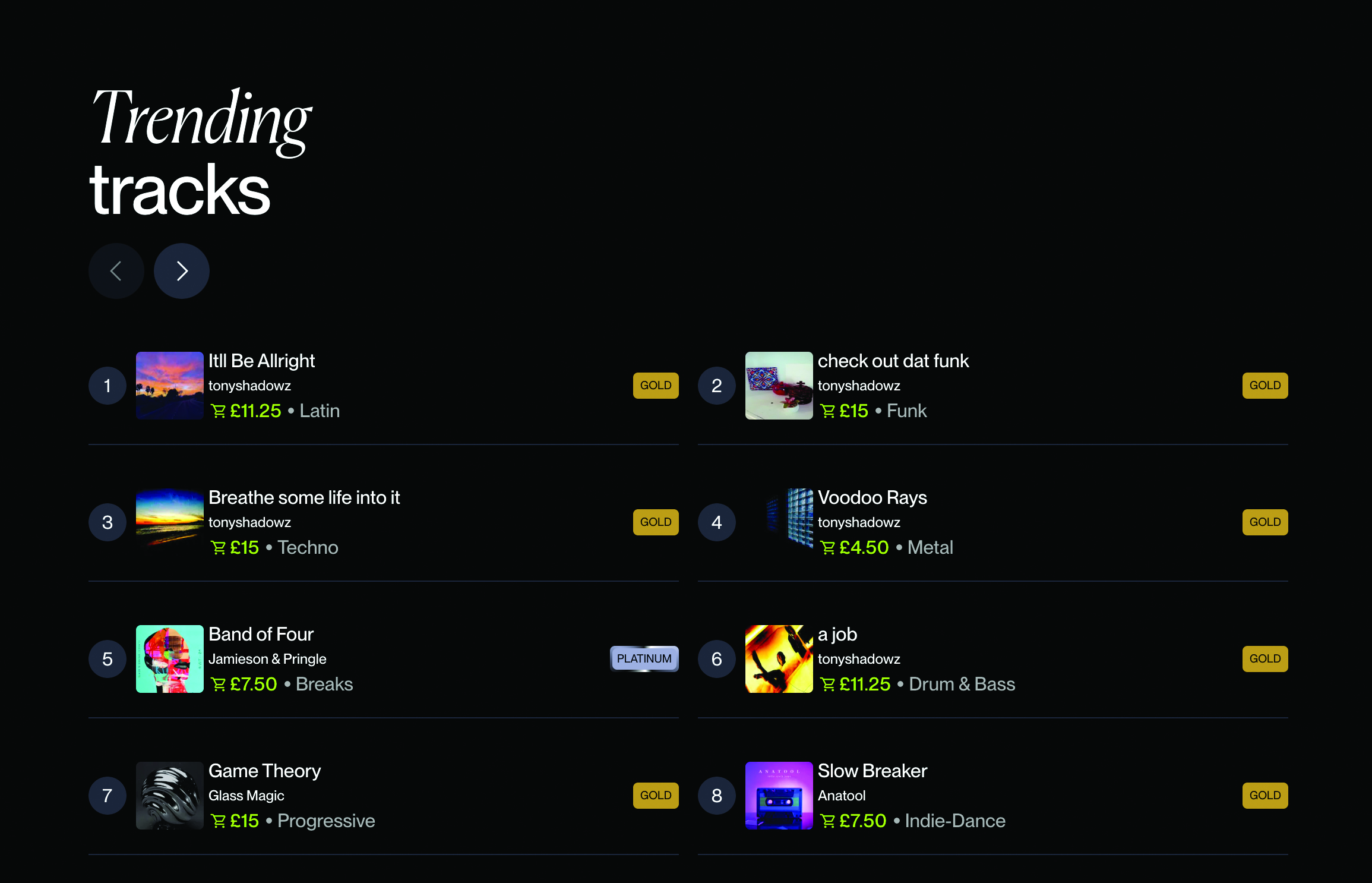
How big is the team at Wavetick and where are you based?
“There are six of us and we’re based between the UK and Los Angeles. We have an in-house sound label – Wavetick Sounds – as well. There’s a bunch of stuff on the site that we actually own and we licence that to people who buy it. You can think of that like Sample Magic mk2! We put real effort and care into that, and we can distribute it all over the world. It’s a really beautiful thing to see, when we’ve got sound designers from literally every European territory and across the USA.”
How many sample packs are there now?
“45, and we’ve got a few more in the pipeline too. We’re hoping to get to 100 by the end of this year. We’re really putting up quite a lot of material. It’s become sort of second nature to us because we know so many great sound designers. Going back to one of your earlier questions, one of my main motivations for doing this is that just about everybody I know is in this space, making great music and sounds, and a lot don’t have an outlet to do anything with it.
"When we first started building the terms and conditions for working with us, a lot of folks just wanted to be paid upfront. And weren’t interested in the royalty consideration at all, they just wanted to be beat-sellers. So we just decided to make our own label. That’s how Wavetick Sounds was born really.”
Do you have any early favourite packs?
“We just launched one today which is actually from the Sofia Philharmonic Orchestra. It’s not your usual sample pack for a unique developer like us. It’s actually beautiful. It’s a selection of live string loops tracked at the Plovdiv Radio Hall. We’re selling it for just $25. Another big attribute of our Wavetick Sounds catalogue is that it’s significantly cheaper than a lot of other stuff out there. I think it equates to roughly ten cents a sample, which is value for money.”
How will you expand Wavetick in the future? Will you offer plugins and software tools also?
We want to bring attention to those who haven’t been discovered before
“We’re making plans to start issuing serial numbers, so with the margin being as low as it is and the platform fee being low, we’re hoping to attract some indie software developers. We don’t want to end up being a reseller market. The same goes for the artists and tracks side – we’re really artist-focussed.
"But if there is a boutique developer out there that has made a really unique utility that isn’t really distributed elsewhere, then that’s a perfect fit. It’s a frictionless site where anybody can onboard, but we’re really interested in those hidden gems. That goes for sounds, tracks and subsequently software. We want to bring attention to those folks who haven’t been discovered before.”
Are you worried about the threat posed by AI on the royalty-free music space?
“I don’t think so. If it was a threat I think it’d be more of a threat to sound packs and stock music. Having spent equal amounts of time both as a sound designer and as a writer of royalty-free music. It’s certainly helpful, and there are some brands who’ll go to it. But if you’re serious about what you do, both in terms of producing and licensing, I think you’ll be more inclined toward having some sort of human interaction and an artist focus.
"I think that’s where ours is really beautiful. We’re making it very clear that it’s made by artists for artists.There is also a major copyright consideration when it comes with AI-generated works. With our storefront it’s not really a consideration as there are so many licensing tiers which span from direct licensing from the beat/track-maker to licensing from us as a platform. There’s a safety net there – a guarantee that what you’re getting from us is legit and isn’t something that has shady data-set training, and might incorporate work that is someone else’s intellectual property.”
What’s coming up next on the agenda for Wavetick?
“We’re starting to think and work on the serial number stuff for sure. We are going to be adding way more beat-maker functionality tools in there, so you’ll be able to see a lot more detail on usage. I think we want to try and go a little further with what we can offer as a publisher. Hopefully we can add in more opportunities that tie into sync and blanket licensing and things like that.
Sync is pretty important right now, everyone seems to want to break into it. If we can help that in any way then we will. We’re really keen to expand the creator base to have a more diverse range of people. We want to see more artist-led faces that aren’t the norm, we want to offer that level of diversity.
"Some of our competitors are getting there too, I went to an awesome Girls Make Beats party at NAMM. There are a lot of awesome people out there making incredible sounds and we have to work extra hard as a platform to make sure we’re representing those folks on our site.”
For more information on the services offered by Wavetick, head over to their website.



I'm Andy, the Music-Making Ed here at MusicRadar. My work explores both the inner-workings of how music is made, and frequently digs into the history and development of popular music.
Previously the editor of Computer Music, my career has included editing MusicTech magazine and website and writing about music-making and listening for titles such as NME, Classic Pop, Audio Media International, Guitar.com and Uncut.
When I'm not writing about music, I'm making it. I release tracks under the name ALP.